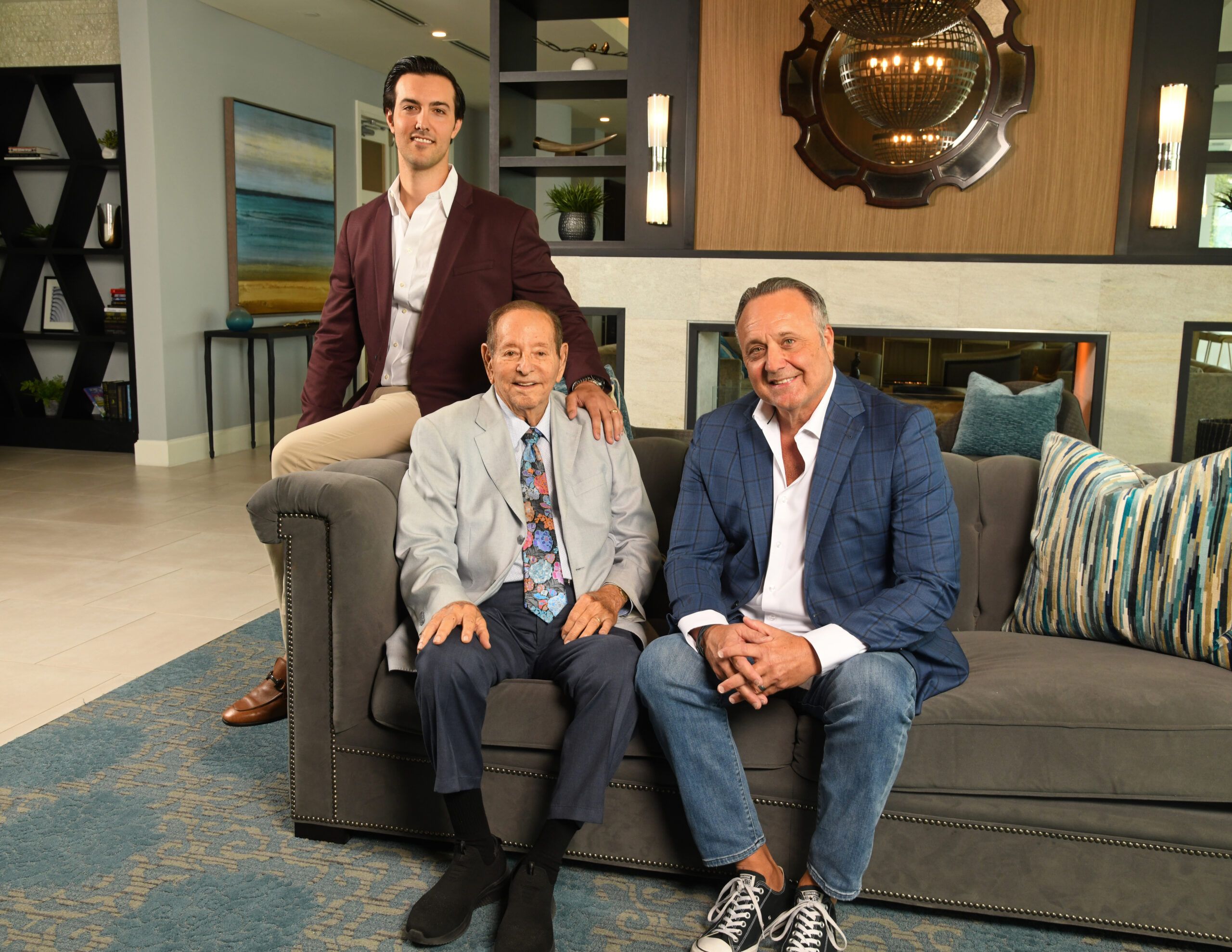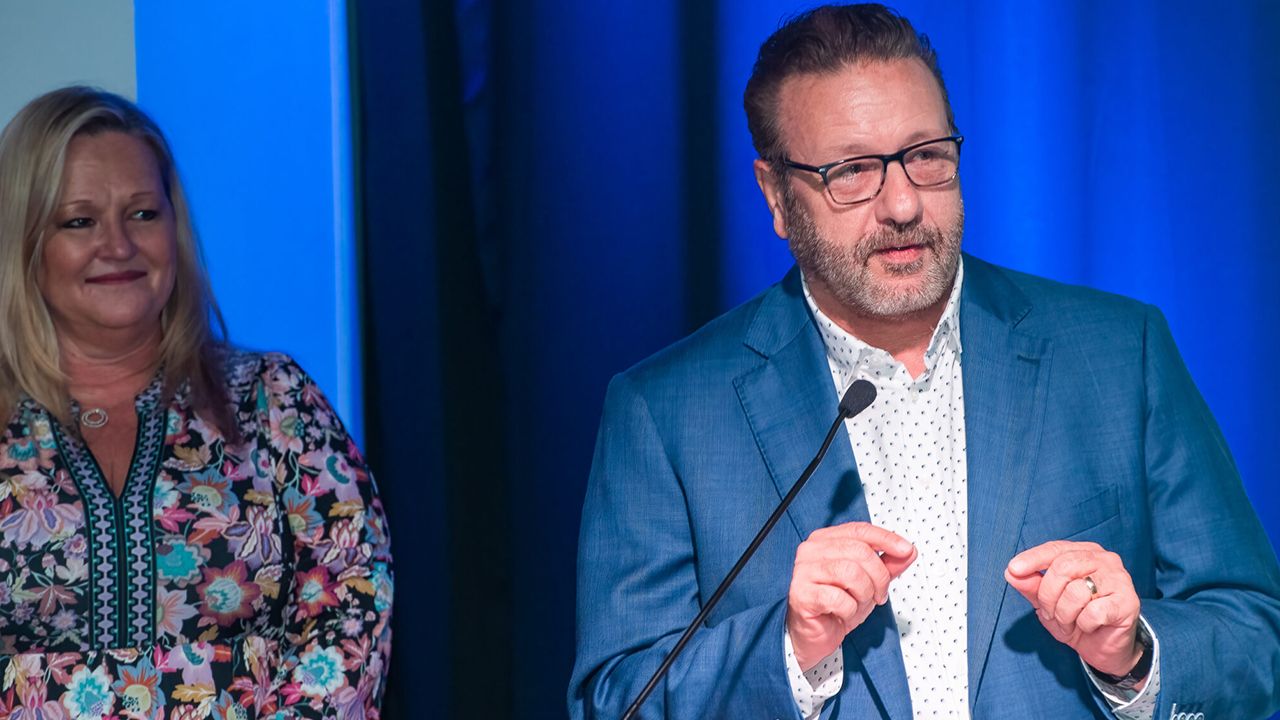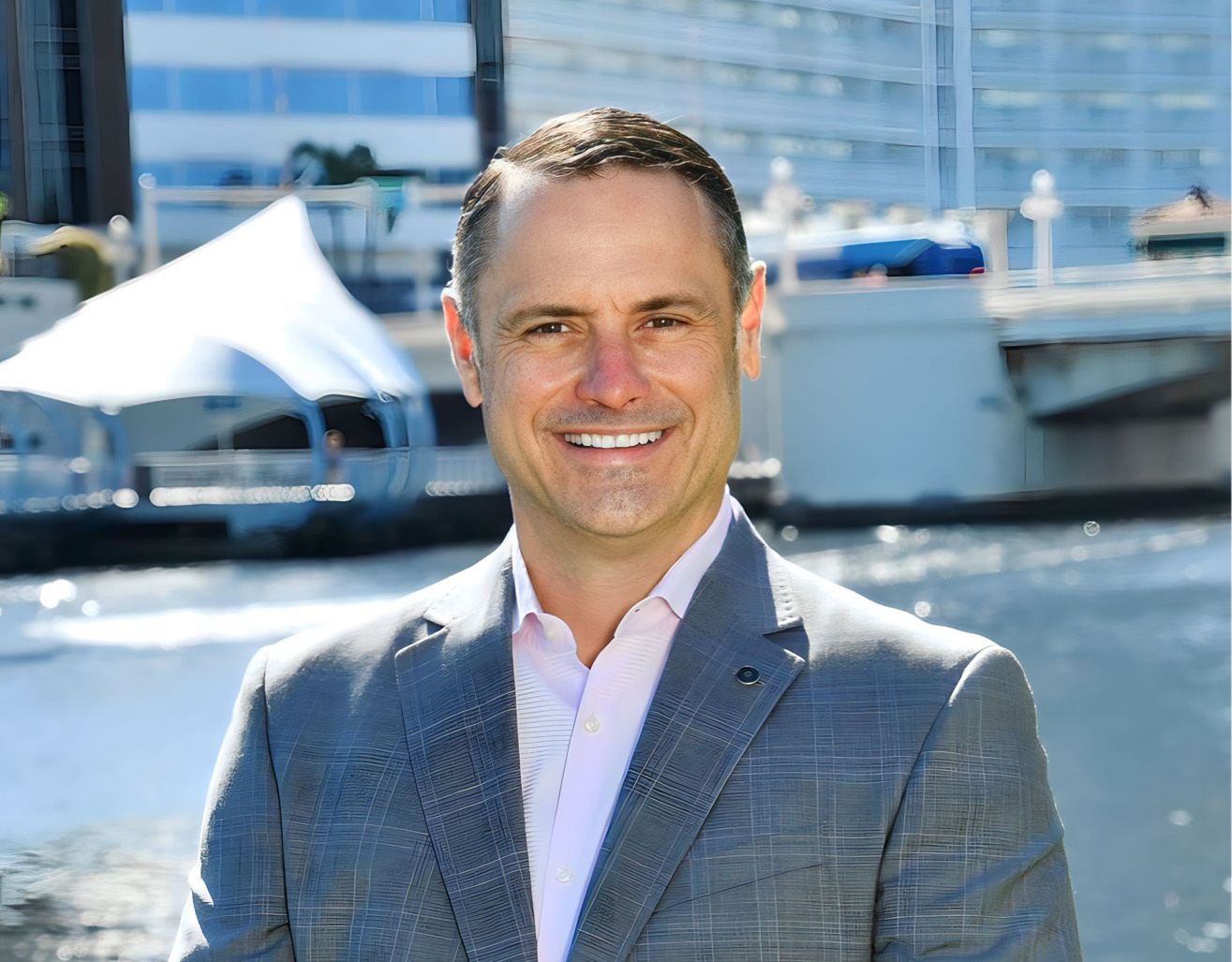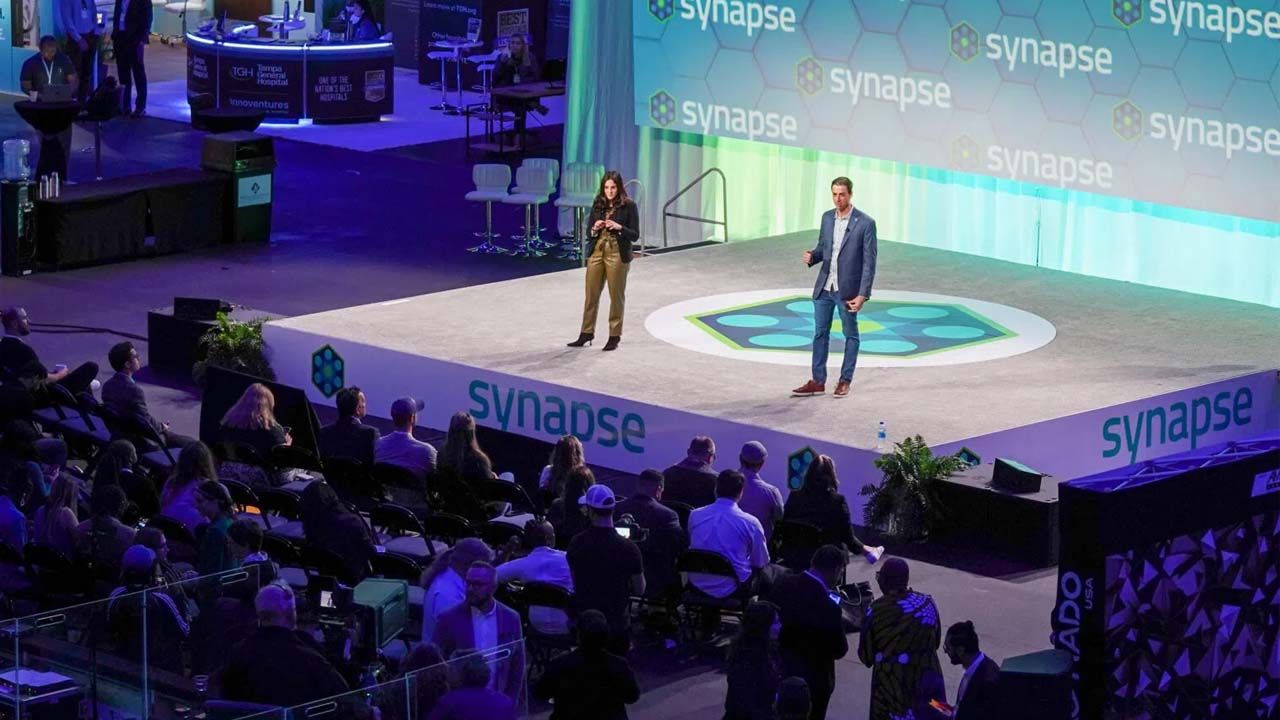Giuseppe Greco immigrated from Santo Stefano, Quisquina, Sicily, to the United States in the late 1800s.
Giuseppe’s son, Domenico, along with his wife, eventually established the King-Greco Hardware store in Ybor City. Domenico’s son, Dick Greco, would eventually spend his young years there, helping with the family business, before growing up to become mayor of Tampa, in 1967.
When he was born, his mother declared him as “perfect.”
“My father had a birth defect. He had one hand that was paralyzed. They never wanted to have children,” says Dick Greco, Sr. “When they delivered me, he was afraid to look at me, afraid I was going to have the same [defect.] My mother said, ‘You can look, he’s perfect.’ And that night my mother and father decided I was perfect.”
He laughs at this memory. As a public servant for most of his adult life, Greco is well aware of how unattainable “perfection” is.
At the age of 34, Greco was one of, if not the youngest, person to be elected mayor of a major city in the U.S., at the time.
“This is probably the best advice I ever got. When I won the election, I went back to thank several people, [and] one of them told me, ‘Never become a prisoner to the boundaries of your own ego,’” Greco reflects.
Through the years, Greco had several obstacles while in office. There was a “good old boys” club that needed to be broken up and there were city departments that needed new leadership. Racism, mafia crime and a gambling racket all needed to be addressed, as well, Greco recalls.
As mayor, Greco purchased property in downtown Tampa like Babe Zaharia Golf Course, Curtis Hixon Park and parcels in Ybor City.
“A lot of things needed to be done back then. There were all kinds of problems we needed to solve,” Greco says.
Throughout his tenure as mayor, he also cites bringing Marriott Waterside to downtown Tampa, collaborating on the design of Tampa International Airport and reestablishing the trolley system as highlights of his accomplishments.
Greco’s only son, Dickie, remembers growing up in South Tampa, and later David Islands, watching dad on the local political stage.
He grew up during the years of kids running through the neighborhood freely, but would know to head home when the streetlights came on.
“We would get our little boats and go over to Sand Island, which is now Harbor Island. There used to be rabbits and wild pigs, a couple of derelict vessels and the trains would run there. The phosphate boats all came in,” Dickie recalls. “No one had a [clothes] dryer so all the laundry would be outside on a clothesline, and when the ships would blow their stacks, everyone would get upset because [the clothes or sheets] would be covered in soot.”
The slower pace and community feeling are memories he’s fond of.
“I don’t know if people were less busy then or maybe there weren’t as many things to do, but it just seemed that a lot of people did a lot of things together,” he says. “I guess people today travel more and do other things, have other interests.”
Dickie attended public schools, in Tampa, and later Auburn University, for undergraduate studies, and then South Texas College, for law school. When he graduated from law school, he returned to Florida when he took a job with the State Attorney’s Office in 1982.
“One of the first police officers I remember really, truly meeting and maybe even doing a couple of her cases, was Jane Castor,” Dickie recalls.
Dickie later became a county judge, then a circuit judge and finally a senior judge, or like a judge “substitute teacher,” as he describes it. He served on the bench for 20 years and says he truly enjoyed the work he did.
“I tell folks all the time, it’s a great job,” he says.
Meanwhile, the third Greco generation was born and grew up, not to enter public office. Yet.
***
Garrett Greco, Dickie’s only son, was born in 1992, at Tampa General Hospital.
A few years later, his grandfather would return to his role as Mayor of Tampa after a hiatus working for the DeBartolo Corp.
“I was only two or three years old when my grandfather became the mayor again. And, I remember it was so cool growing up here and riding around in his car,” says Garrett. “I remember thinking how cool he was to be in charge of the city and to have [the] responsibility he had.”
During the same period, Garrett’s father was also already a judge. “The people I got to meet, growing up in Tampa, was probably extremely unique,” he says.
When his parents divorced, he moved to Sarasota, for a period, with his mother but would return to Tampa, as an adult, and establish a real estate business, Greco Real Estate.
“If someone had told me they’re going to put a Ritz Carlton in Tampa, people would have said, ‘What are you talking about?’ Now, we’ve got two five-star hotels. I think even in my 31-year lifetime, for Tampa, the pendulum has completely swung,” Garrett says.
Dickie would make a run for mayor but was unsuccessful. After a visit up to St. Augustine, with his wife, Shelly, they made the decision to move up there.
“We really just thought man, this place is really nice,” Dickie says. “You can be at the airport, in Jacksonville, in less than an hour. You can drive to Savannah…they did have a little change of the weather.”
These days, Dickie Jr. is content being retired, enjoying St. Augustine with Shelly and being a grandfather to his grandson born in May of 2023.
As the three generations have made their mark on the Tampa area, it’s hard not to reflect on all that has changed during their collective years. Once was a sleepy town finding itself, now it’s one of the most attractive regions to live in the country.
“During COVID, a lot of people traveled down here for the first time, and they thought, my God, what am I doing freezing [up north],” he says.
Dickie understands the allure.
“There’s something here, that I’m sure someone like me takes for granted. We can drive down Bayshore and don’t think two seconds about it,” he says. “But, other folks come here and go, this is like heaven.”
The Grecos agree on one thing, for sure, the city has been good to their family and they share a deep appreciation, and fondness, for the place the Grecos have largely called home since the early 1900s.
“This city has been great to my grandparents, to my great grandparents, and to my dad, my mom, to us. It’s been great for my son,” Dickie says.
As the youngest generation, only a few months old now, starts his Tampa experience, the patriarch of the Greco family reflects on what he sees for the future line of Grecos.
He reiterates the advice that was given to him. “Never become a prisoner to the boundaries of your own ego,” Greco says.
REAL ESTATE TAKE FROM A MILLENNIAL GRECO
It’s a hot topic. Tampa Bay real estate. And, it’s creating issues for the market that could hinder the trajectory of economic growth in the market if not addressed, says Garrett Greco.
The conundrum the region faces is particularly hitting hard for the next generation of professionals entering the workforce, even those in their early careers.
“Even with parents co-signing, the increasing costs and decreasing affordability is an issue,” Garrett says. “And it’s not only affecting homebuyers, but renters, too. It’s going to hurt us economically. You can’t have a really good job base if we can’t have affordable housing for college-educated people.”
Affordable housing must be a part of the regional development plan.
“We have to increase supply to wean off some demand,” he says. “I think the solution is to build more.”
“You can’t stop people from moving here, you just have to plan for it,” Garrett says.











